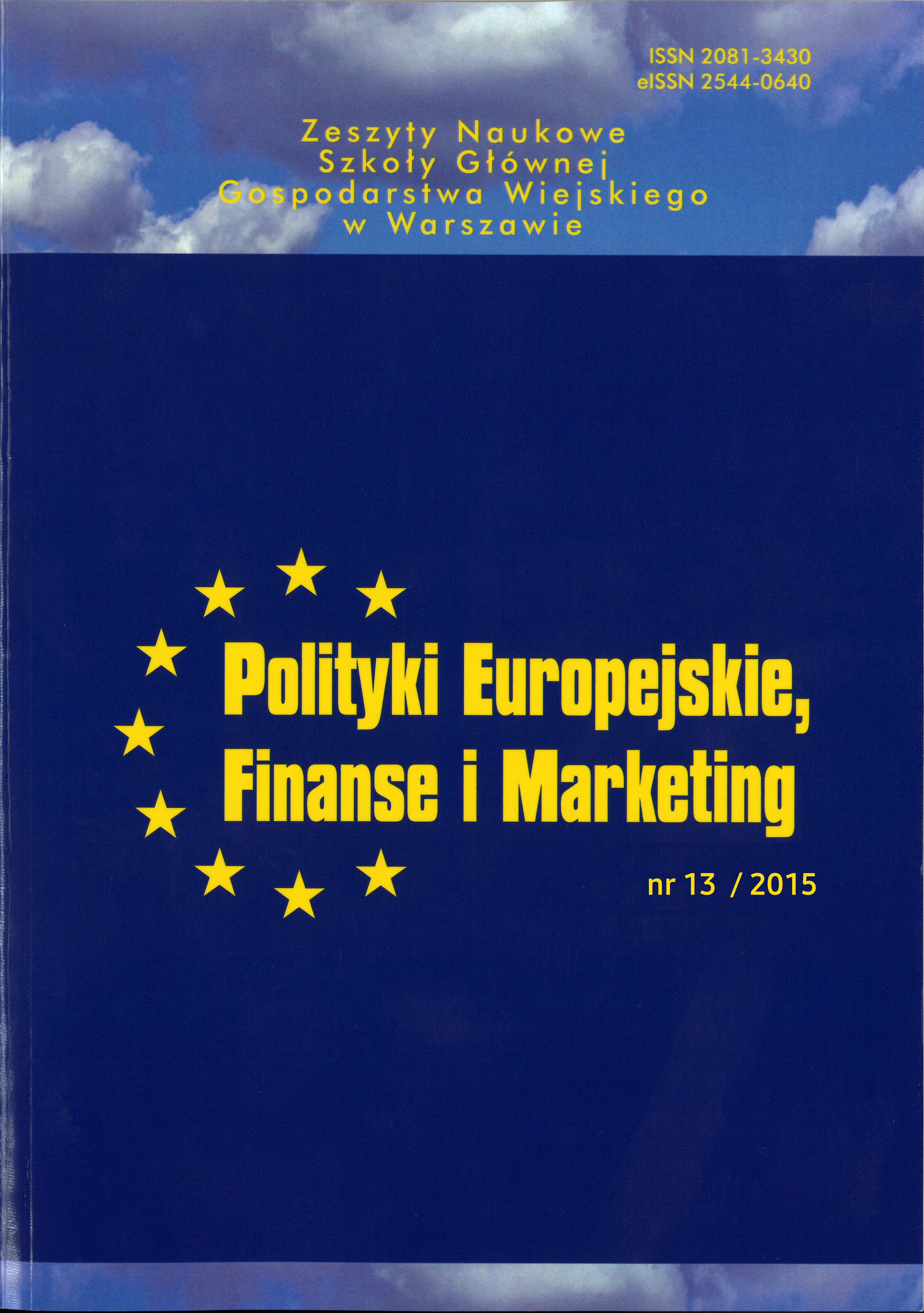Main Article Content
Article Details
Clarkson M., A stakeholder framework for analyzing and evaluating corporate social performance w: Academy of Management Review, 1995, Vol. 20, No. 1. (Crossref)
Contemporary Sport Management, ed. Parks J.B., J. Quarterman J., Human Kinetics, Champaign 2003.
Covell D., Walker S., Siciliano J., Hess P., Managing Sports Organizations, Butterworth-Heinemann, Burlington 2007.
Freeman R.E., Harrison J.S., Wicks A.C., Managing for Stakeholders. Survival, Reputation, and Success, Yale University Press, New Haven & London 2007.
Friedman A.L., Miles S., Developing Stakeholders Theory, Journal of Management Studies, 2002, vol. 39, no. 1. (Crossref)
Gordon I.H., Relacje z klientem. Marketing partnerski, PWE, Warszawa 2001.
Greenwell T.Ch., Danzey-Bussell L.A., Shonk D.J., Managing Sport Events, Human Kinetics, Champaign 2014.
Gronroos Ch., Service Management and Marketing, Managing the Moments of Truth in Service Competition, Free Press, Lexington 1990.
Hoye R., Smith A., Westerbeek H., Stewart B., Nicholson M., Sport Management, Butterworth-Heinemann, Burlington 2006. (Crossref)
Low C., Cowton C., Beyond stakeholder engagement: The challenges of stakeholder participation in corporate governance, International Journal of Business Governance and Ethics, 2004, 1(1). (Crossref)
Marketing imprez biegowych, (red.) Z. Waśkowski, Bogucki Wydawnictwo Naukowe, Poznań 2014.
Mendryk I., Budowanie relacji z otoczeniem jako kompetencja organizacji, Annales Universitate Mariae Curie-Sklodowska Lublin, vol. XLII, 10, 2008.
Mullin B.J., Characteristics of Sport Marketing, w: Successful Sport Management, ed. H. Appenzeller, G. Lewis, Carolina Academic Press, Durham 2000.
Paliwoda-Matiolańska A., Teoria interesariuszy w procesie zarządzania współczesnym przedsiębiorstwem, w: Wspólna Europa. Zrównoważony rozwój przedsiębiorstwa a relacje z interesariuszami, (red.) H. Burdulak, T. Gołębiowski, SGH, Warszawa 2005.
Schwarz E.C., Hunter J.D., Sport Marketing, Butterworth-Heinemann, Burlington 2008. (Crossref)
Waśkowski Z., Uwarunkowania i sposoby wdrażania orientacji marketingowej w klubach sportowych, Wyd. Akademii Ekonomicznej w Poznaniu, Poznań 2007.
www.kfknowledgebank.kapaln.co.uk
Downloads
- Agnieszka Brelik, Marek Tomaszewski, PRESSURE FROM COMPETITORS AND INNOVATIVE ACTIVITYENTERPRISES IN DEVELOPING COUNTRIES , The Scientific Journal European Policies, Finance and Marketing: No. 12(61) (2014)
You may also start an advanced similarity search for this article.
- Zygmunt Waśkowski, THE DETERMINANTS OF PURCHASE DECISIONS OF CUSTOMERS ON THE SPORT PRODUCTS MARKET , The Scientific Journal European Policies, Finance and Marketing: No. 17(66) (2017)
- Zygmunt Waśkowski, DETERMINANTS OF THE CO-CREATION OF CONSUMER VALUE ON THE SPORTS EVENT MARKET , The Scientific Journal European Policies, Finance and Marketing: No. 23(72) (2020)

This work is licensed under a Creative Commons Attribution-NonCommercial 4.0 International License.
All articles published in European Policies, Finance and Marketing are fully open access. In this way, the scientific research results contained in articles published in our journal are available to every reader free of charge - in accordance with the CC BY-NC license (https://creativecommons.org/licenses/by-nc/4.0/).
According to the CC BY-NC license you are free to:
- Share — copy and redistribute the material in any medium or format
- Adapt — remix, transform, and build upon the material
The licensor cannot revoke these freedoms as long as you follow the license terms.
Under the following terms:
- Attribution — You must give appropriate credit , provide a link to the license, and indicate if changes were made . You may do so in any reasonable manner, but not in any way that suggests the licensor endorses you or your use.
- NonCommercial — You may not use the material for commercial purposes .
- No additional restrictions — You may not apply legal terms or technological measures that legally restrict others from doing anything the license permits.
Source: https://creativecommons.org/licenses/by-nc/4.0/deed.en
According to that, the authors retain the copyright and full publishing rights.





